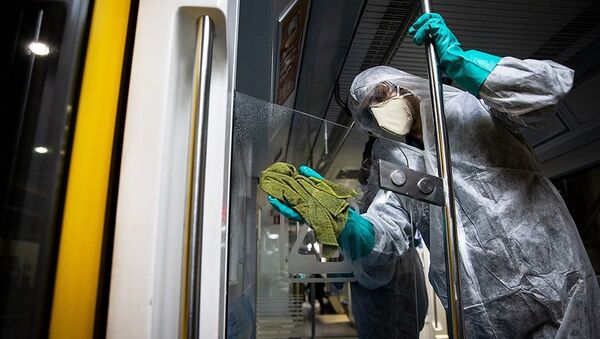People entering a food market in Georgia have been asked to hand over cash for disinfection in order to stop the spread of coronavirus, the country’s local media reported. Everyone who is willing to enter Poti market in the west of the country needs to give their cash and coins to a guard dressed in protective equipment for the COVID-19 virus. Banknotes are ironed out, while coins are washed with antiseptic. After being “cured”, the money is returned to its rightful owner. People who refuse to undergo such a procedure are not allowed to enter the market.
In addition, the market’s management has introduced screening and security measures. All vendors and customers are checked for body temperature and are given protective gloves and told to observe social distancing.
The news comes as the number of coronavirus cases in Georgia has risen to 170. Two people have died from the disease, while another 36 have recovered.
The Ultimate Spreader
It’s no secret that money is on the list of germiest things we touch every day. According to some reports, the COVID-19 virus may live on paper for up to four days. Needless to say, ever since the outbreak of coronavirus, several countries have cut down on the use of cash. In the beginning of March, South Korea took all banknotes out of circulation and even burned some cash which had traces of COVID-19.
Authorities worldwide have been encouraging citizens to use contactless payments via credit cards and smartphones
It should be noted that smartphones and cellphones are also on the list of dirtiest things. Health experts have advised people to disinfect their phones and other gadgets they carry with them outside.
A recent survey published in the New England Journal of Medicine says traces of COVID-19 can live on copper for up to four hours, while on steel and plastic surfaces it can live up to three days.


